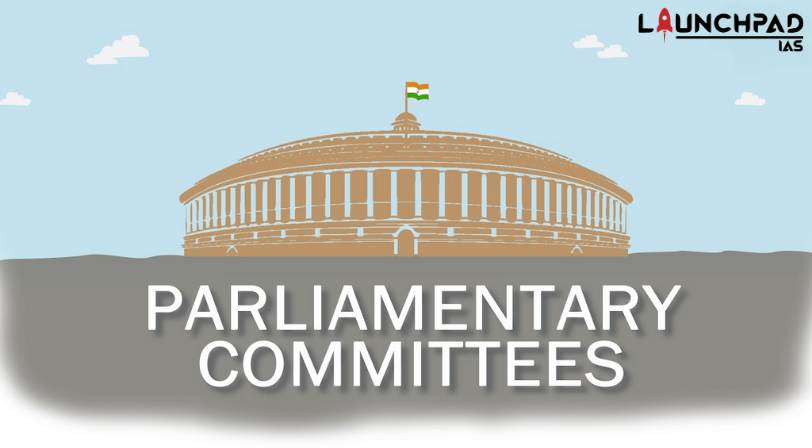About
- A Parliamentary Committee is a panel of MPs that is appointed or elected by the House or nominated by the Speaker/Chairman.
- The committee works under the direction of the Speaker/Chairman and it presents its report to the House or to the Speaker/Chairman.
- Parliamentary Committees have their origins in the British Parliament.
- They draw their authority from Article 105 and Article 118.
- Article 105 deals with the privileges of MPs.
- Article 118 gives Parliament authority to make rules to regulate its procedure and conduct of business.
Need for Parliamentary Committee
- Parliamentary Committee plays a vital role in the Parliamentary System. They are a vibrant link between the Parliament, the Executive, and the general public.
- The need for Committees arises out of two factors, the first one being the need for vigilance on the part of the Legislature over the actions of the Executive, while the second one is that the modern Legislature these days is over-burdened with heavy volume of work with limited time at its disposal. It thus becomes impossible that every matter should be thoroughly and systematically scrutinized and considered on the floor of the House.
Various Committees of Parliament
- India’s Parliament has multiple types of committees. They can be differentiated based on their work, their membership, and the length of their tenure.
- However, broadly there are two types of Parliamentary Committees– Standing Committees and Ad Hoc Committees.
- The Standing Committees are permanent (constituted every year or periodically) and work continuously.
- Standing Committees can be classified into the following six categories: Financial CommitteesDepartmental Standing CommitteesCommittees to EnquireCommittees to Scrutinise and ControlCommittees Relating to the Day-to-Day Business of the HouseHouse-Keeping Committees or Service Committees
- While the Ad Hoc Committees are temporary and cease to exist on completion of the task assigned to them.
- They are further subdivided into Inquiry Committees and Advisory Committees.
- The principal Ad hoc Committees are the Select and Joint Committees on Bills.
Significance of Parliamentary Committees
Provides Legislative Expertise:
- Most MPs are not subject matter experts on the topics being discussed — they are generalists who understand the pulse of the people but rely on advice from experts and stakeholders before making decisions.
- Parliamentary committees are meant to help MPs seek expertise and give them time to think about issues in detail.
Acting as a Mini-Parliament:
These committees act as a mini-parliament, as they have MPs representing different parties are elected into them through a system of the single transferable vote, in roughly the same proportion as their strength in Parliament.
Instrument for Detailed Scrutiny:
When bills are referred to these committees, they are examined closely and inputs are sought from various external stakeholders, including the public.
Provides a Check on the Government:
- Although committee recommendations are not binding on the government, their reports create a public record of the consultations that took place and put pressure on the government to reconsider its stand on debatable provisions.
- By being closed-door and away from the public eye, discussions in committee meetings are also more collaborative, with MPs feeling less pressured to posture for media galleries.
Why parliamentary committees are sidelined?
Weakening of Parliamentary System Government:
- A parliamentary democracy works on the doctrine of fusion of powers between parliament and the executive, but the Parliament is supposed to maintain oversight of the government and keep its power in check.
- Thus, by circumventing the Parliamentary committees in the passing of significant legislation, there is a risk of weakening democracy.
Enforcing Brute Majority:
- In the Indian system, bills don’t need to be sent to committees. It’s left to the discretion of the Chair — the Speaker in the Lok Sabha and Chairperson in the Rajya Sabha.
- By giving discretionary power to the Chair, the system has been specially rendered weak in a Lok Sabha where the ruling party has a brute majority.


